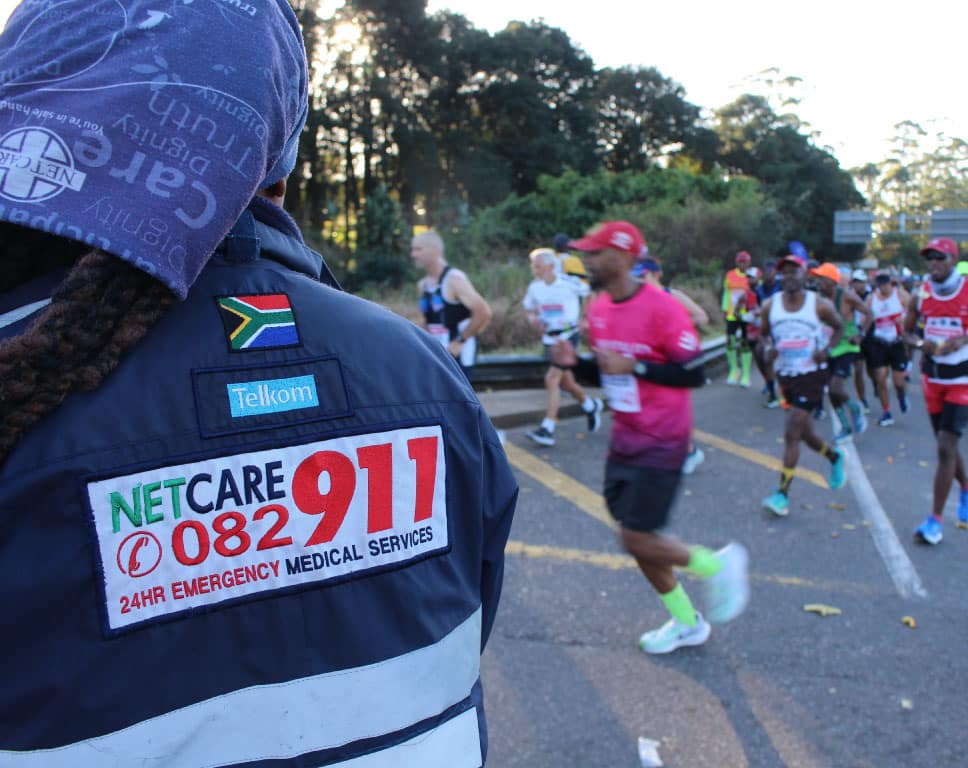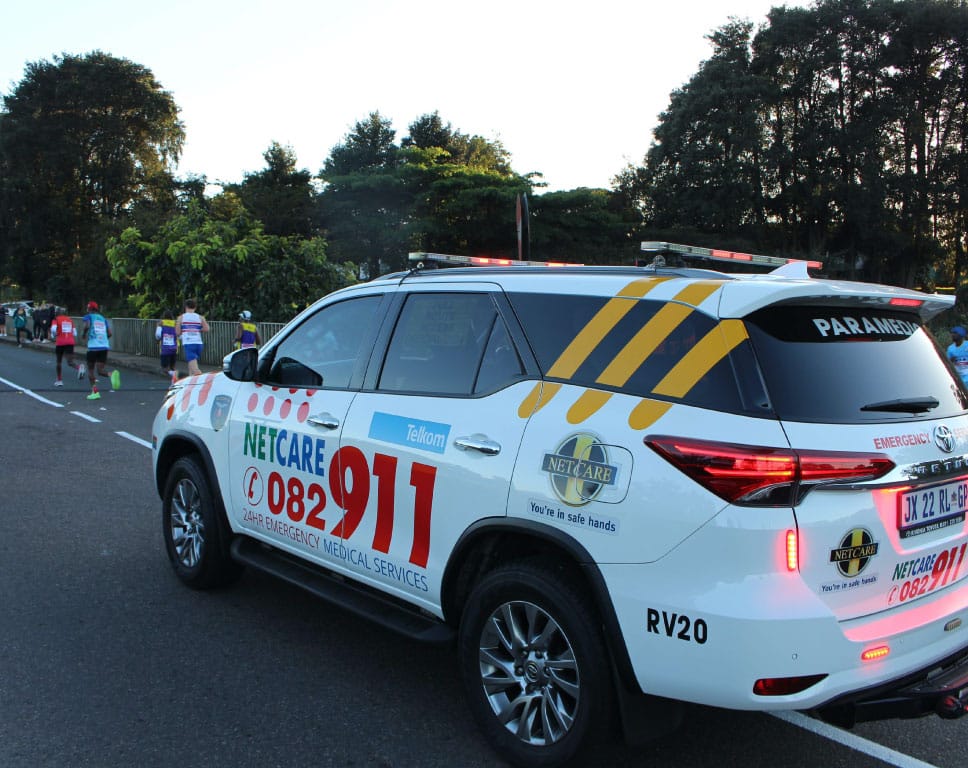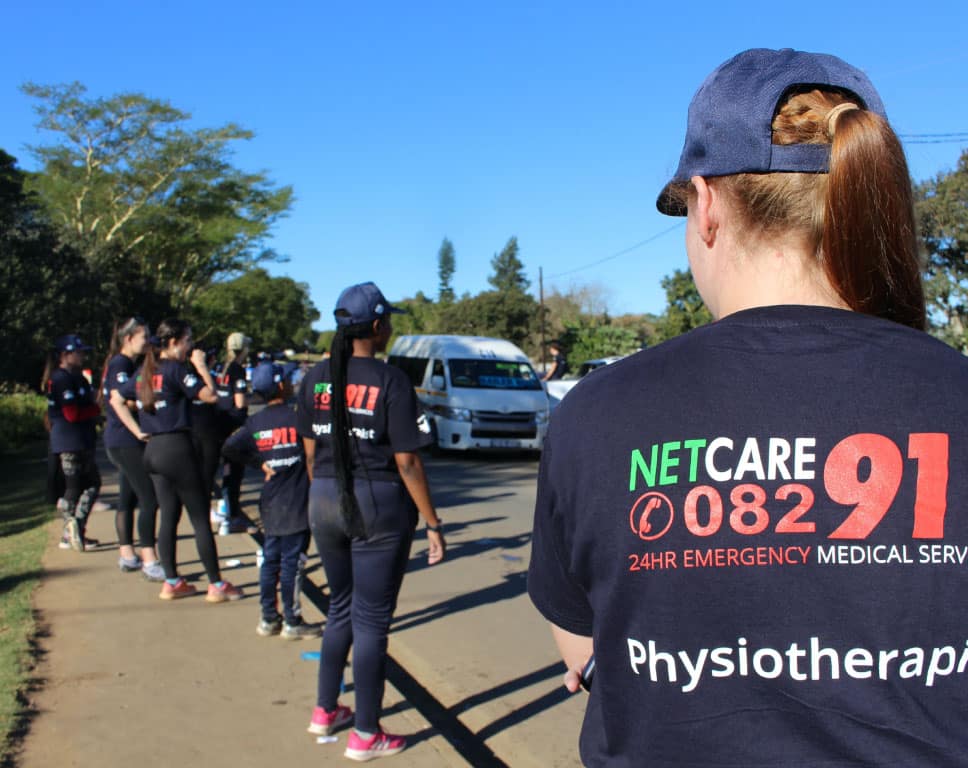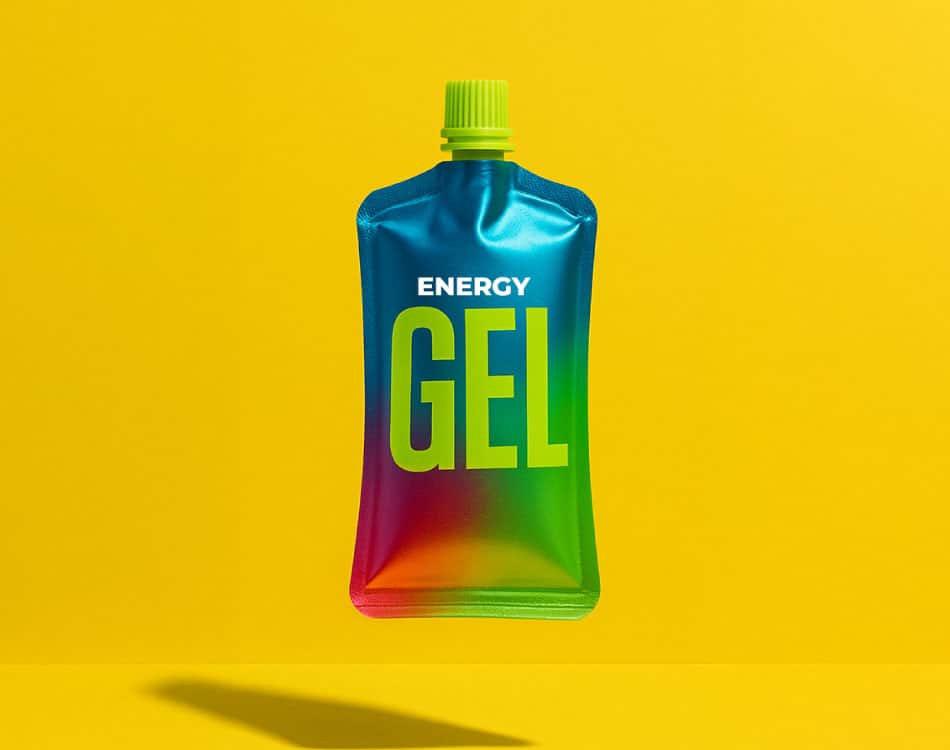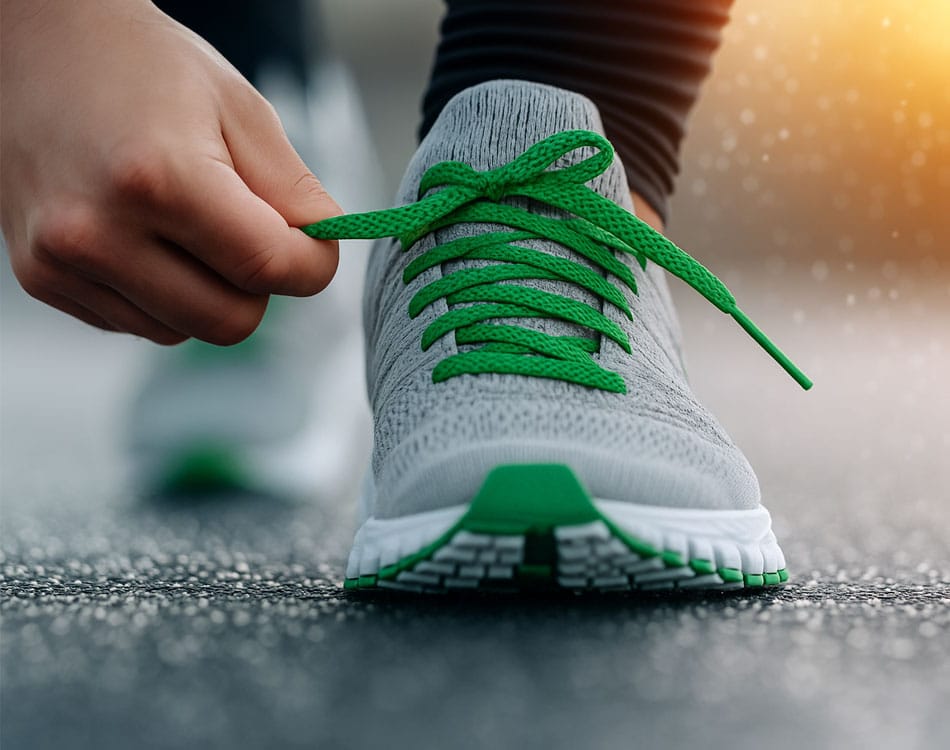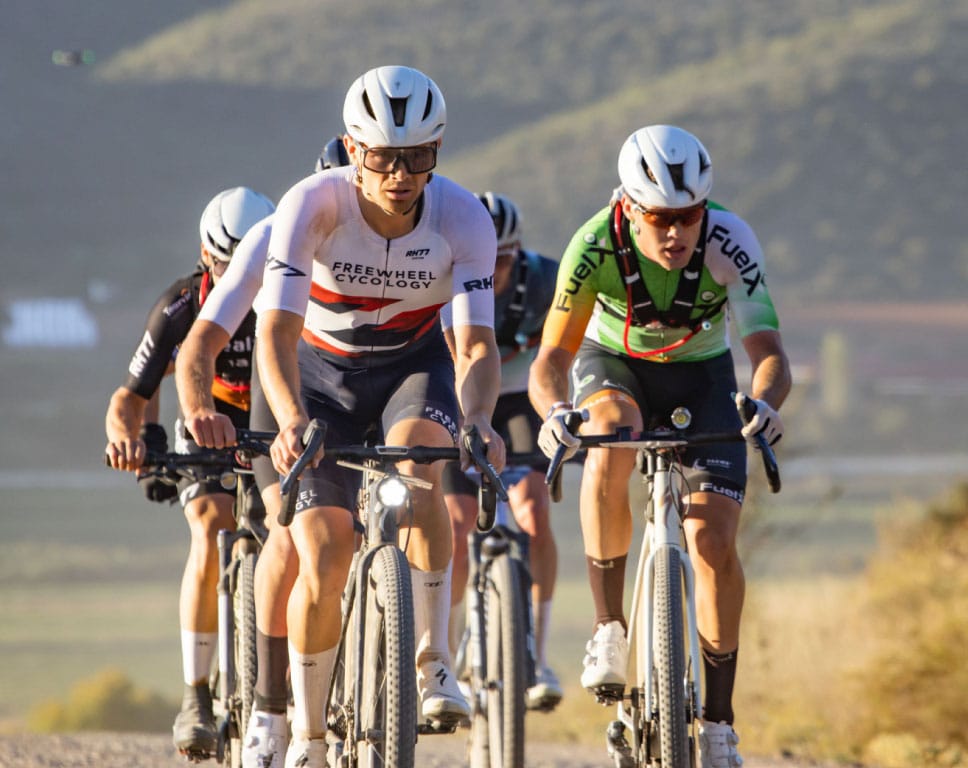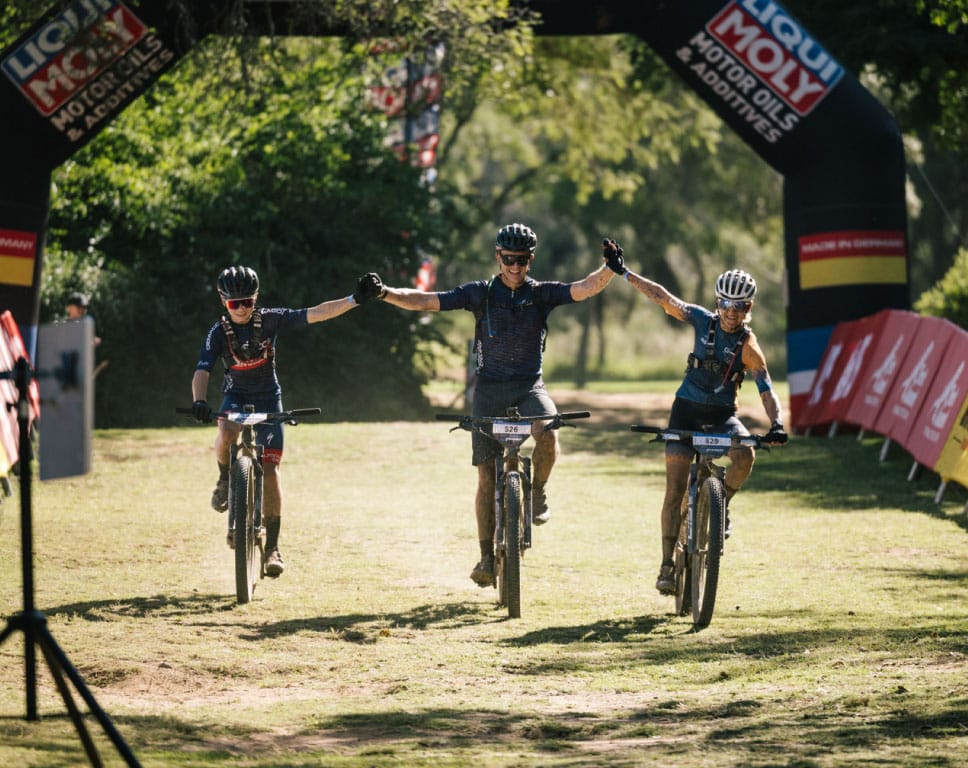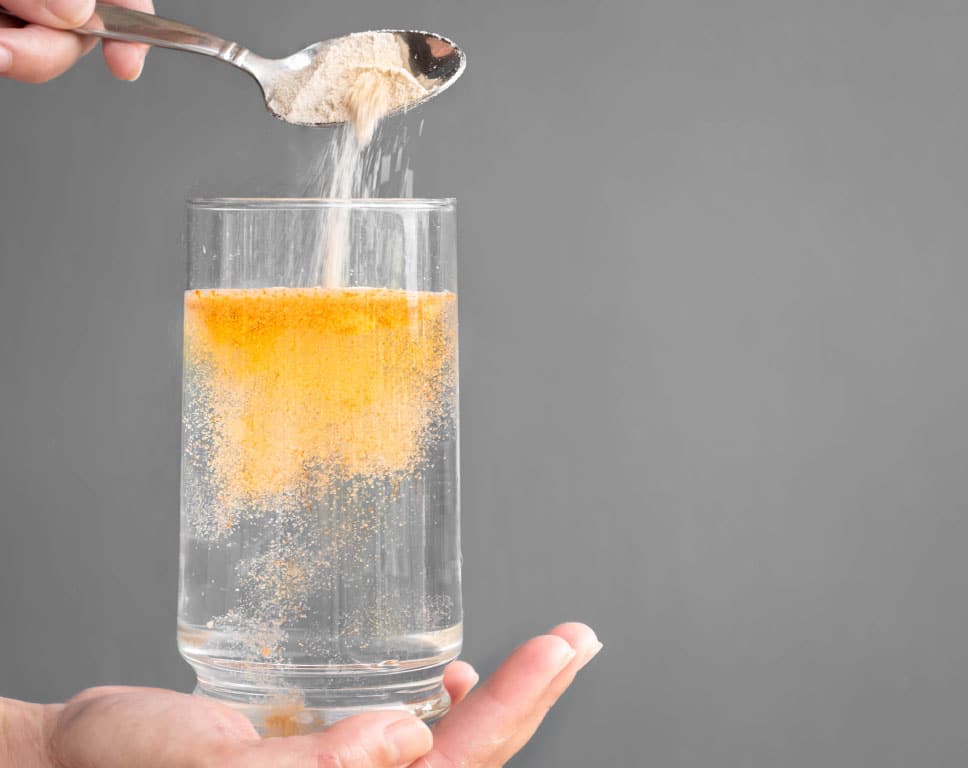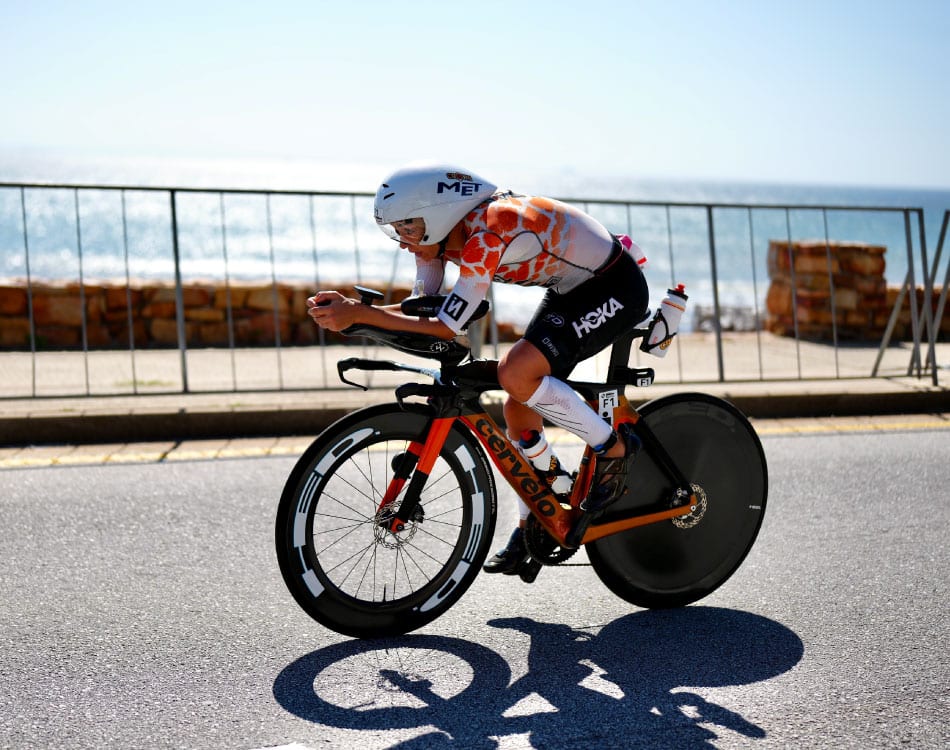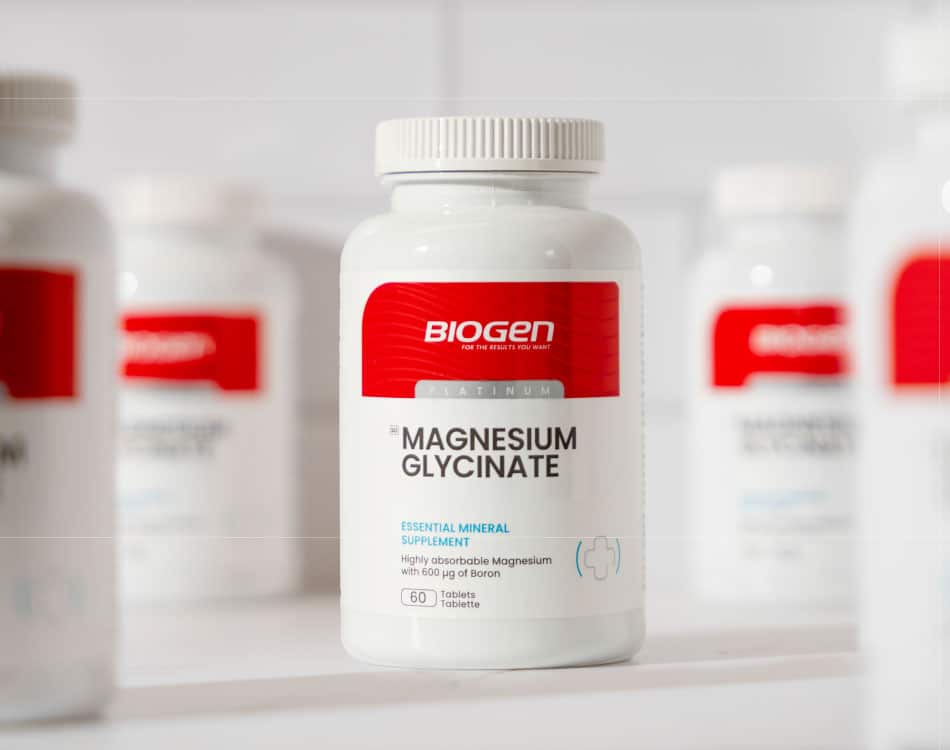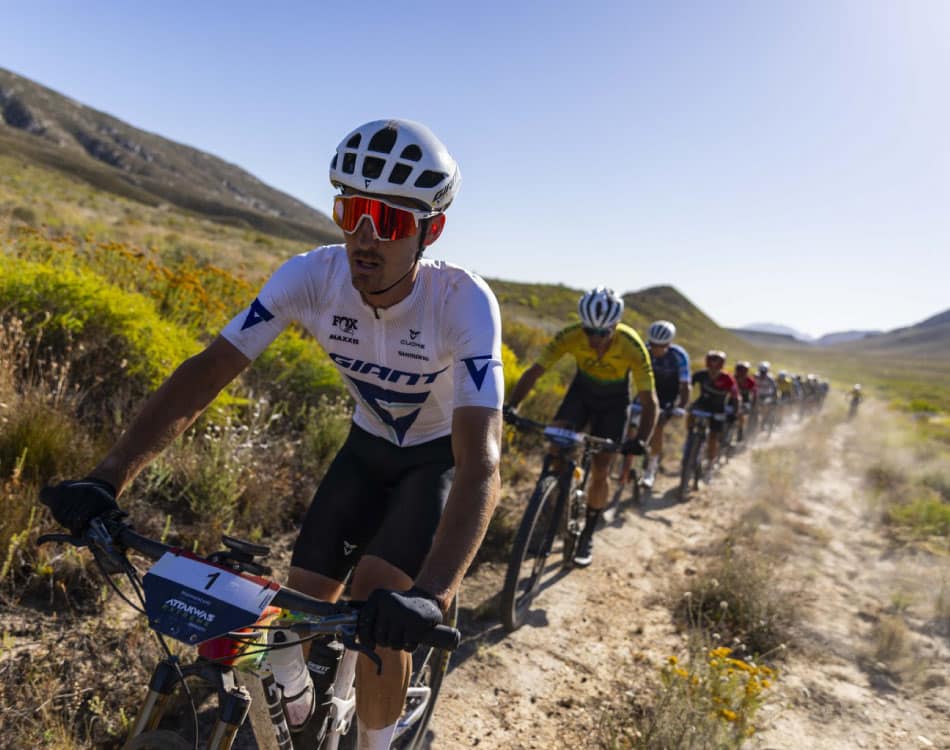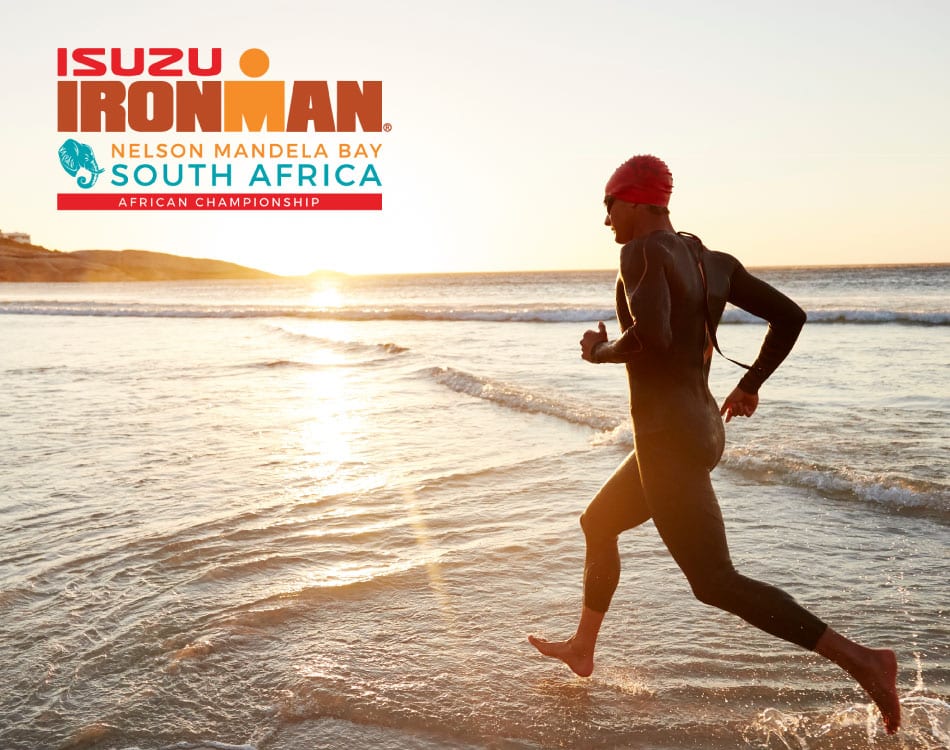With just days to go before thousands of runners from around the world line up at the Pietermaritzburg City Hall on Sunday, 8 June, for the 98th edition of the Comrades Marathon, they can rest assured that any medical need that may arise will be well taken care of.
Whether it’s a plaster for a blister from a friendly nurse, a massage for tired muscles administered by a trained physiotherapist, or the critical care services of highly skilled advanced life support paramedics and doctors for a more serious eventuality, Comrades Marathon runners will have a team of some 585 medical staff available over their journey to the finish line in Durban.
A team effort
Mande Toubkin, Netcare’s general manager of emergency, trauma, transplant and corporate social investment, says Netcare and Netcare 911 are proud to partner with the Comrades Marathon Association for the 24th year to provide emergency medical care for the runners.
“The event is so big in terms of its medical support needed that staff from Netcare travel from hospitals all over KwaZulu-Natal to assist along the route in the medical stations and at the Comrades Finish Medical Tent.”
Participating hospitals include Netcare Alberlito, Netcare Kingsway, Netcare Margate, Netcare Parklands, Netcare St Annes, Netcare St Augustine’s, Netcare The Bay, Netcare Umhlanga Hospitals, and Netcare Diagnostics Point of Care pathology testing technology will be used.
“After the race, all our emergency departments across the province also care for runners, highlighting the widespread support from emergency medicine and specialists for this much-anticipated event.
“It’s always an inspiration for us to see the sheer strength of the human spirit embodied in the participants. We want to assure them that our skilled medical staff, across many disciplines, are there to lend a helping hand for any medical issues they may have on the road,” she says.
“As always, our nurses and medical practitioners are excited to be part of this iconic event on the global marathon calendar. We feel honoured to once again be entrusted with the immense responsibility of this important contribution to the Ultimate Human Race.”
Down run race
This year, the Comrades Marathon is a down run, starting with the traditional cock’s crow in Pietermaritzburg and finishing a gruelling 89.98 kilometres later outside the People’s Park in Durban.
“The Comrades Marathon Association [CMA] recognises the hard work of the emergency and medical staff from Netcare who go above and beyond the call of duty on race day to ensure every runner who needs medical attention receives prompt assistance,” says Alain Dalais, general manager of the CMA.
“We believe that they’re an important part of the spirit of Comrades and their contribution is always appreciated, especially this year as it’s the largest ever field in history for a Comrades down run, with potentially 22,000 runners starting on 8 June.”
Extensive medical support
Netcare 911 operations director Shalen Ramduth says the extensive medical contingent from Netcare 911 and the Netcare group, together with doctors’ and physiotherapy practices, will comprise:
- 80 paramedics
- 72 nurses of whom 13 are from Netcare St Anne’s Hospital, a level one trauma centre in Pietermaritzburg
- 343 physiotherapists
- 100 doctors
- 16 advanced life support ambulances
- 11 advanced life support rapid response vehicles
Netcare’s ICU medical configured emergency medical helicopter with specialised staff on standby
- 4 medical motorbikes
- A medical quad bike
- 17 joint operating centres, logistics and IT staff.
Ramduth says that the Comrades Finish Medical Facility has been a feature of the Comrades Marathon since 1977.
“Eight Netcare medical stations will be set up along the route where runners will find Netcare 911 advanced life support paramedics, ambulances and nurses to render any medical assistance. Runners who need first aid or treatment can also approach Netcare 911 staff and race marshals along the route.”
“We also urge runners and those seconding them to download the Netcare app, ahead of time. This app has a Netcare 911 emergency call and geolocation function, as well as a 60-second call-back option. At the swipe of a button, it lets us find you and get to you with the medical help you need.”
Ramduth paid tribute to the medical team, who on Comrades Day work an extra-long shift.
“The team deploys at around 1 am and only goes off duty after all the runners have left. It’s exactly this willing human element from all the medical staff involved which contributes towards making the Comrades Marathon so exceptional.”

Race day expectations
The CMA’s race doctor, Dr Jeremy Boulter, has been at the helm of coordinating their extensive medical, emergency, first aid and physiotherapy response to assist runners over 47 years – a feat of endurance in itself.
Asked what keeps him coming back for this immense task each year, he says, “Although I don’t experience the same physical trauma the participants do, I keep coming back for the same reason the runners do. It’s a unique race. We meet so many people and interact with the other volunteers, and I’ve also made some good friends over the years.”
Dr Boulter says the down run is often harder on the legs with people having more aches and pains the next day, compared to years starting in Durban.
“The main concerns we usually treat on race day are exhaustion, dehydration, some over-hydration and any arising acute medical problems experienced on the route. Most musculoskeletal problems will only surface the following day and will need treatment then.”
Weather-wise, he’s hoping for a cool day without wind for the participants. “We definitely don’t want it to be wet or extremely cold.”
Safety tips for runners
With his extensive experience in race-day emergencies, Dr Boulter offers five points of sound advice to runners on the day.
#1. Make sure you’re healthy
Don’t run if you are ill or have been ill with influenza in the two weeks prior to Comrades Day.
“If your symptoms were experienced above the neck, it’s probably okay to run, but if they were below the neck, don’t chance it. If you’ve had a fever with aches and pains, a chest infection or coughing, and you’re still on treatment, don’t attempt the race,” advises Dr Boulter.
#2. Don’t take medication
Don’t take medication such as painkillers, anti-inflammatories or muscle relaxants while running, warns Dr Boulter. “There is plenty of medical help along the way if you need it.”
Referring to the eight Netcare sponsored physiotherapy and first aid stations along the route, Dr Boulter says physiotherapists will be massaging and strapping runners who need treatment.
“The first aid stations will be able to assess patients and treat minor wounds from falls, for example, and check runners’ blood sugar and blood pressure. If they assess a runner and feel they shouldn’t carry on, they will tell them this,” he says.
“We’ll also have the ambulances, cars and motorbikes with advanced life support paramedics and the Netcare helicopter available if necessary. The runners must enjoy their run, be sensible and listen to their bodies.”

